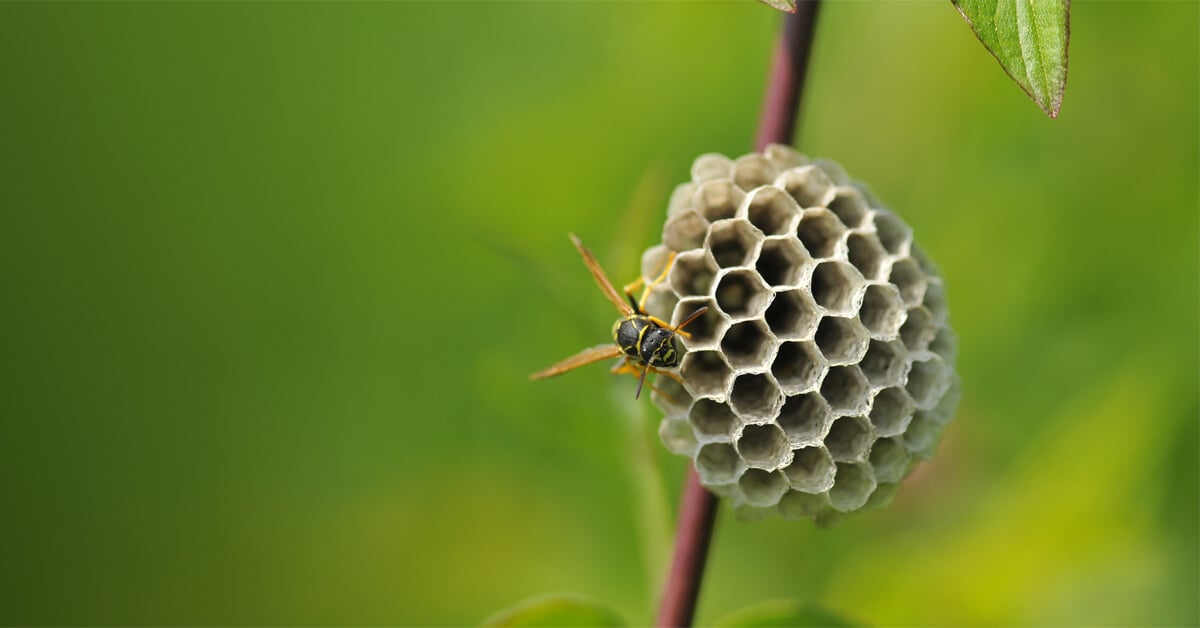WHAT HAPPENS TO BEES AND WASPS IN WINTER?

Bees and wasps buzzing around last-blooming flowers can be a problem when New Jersey, Pennsylvania, Delaware, and Eastern Shore of Maryland residents are outdoors raking leaves or getting the lawn and garden ready for winter. As they’re pruning shrubs or adding mulch, gardeners may stumble upon an underground bee nest or discover a papery wasp nest layered between evergreen branches. It’s the bee nests that should concern residents, warn your local pest control professionals at Viking Pest Control.
How Do I Know What Type of Bee I Am Seeing?
Many bees and wasps have similar black and yellow markings, making it difficult to tell them apart. NJ, PA, MD, and DE pest control pros at Viking Pest Control look at the insect’s body for identification clues. Bees are covered with short, dense hairs while wasps usually have smooth bodies. Bees also have thick, cylindrical bodies while wasps, which are descended from ants, have a narrow waist. Because not all species adhere to the norm, definitive identification should be made by a knowledgeable pest control professional from Viking Pest Control.
Another notable difference is aggressiveness. Bees are the more docile species and generally won’t bother you unless you disturb their nest. Wasps, on the other hand, particularly yellow jackets, are highly aggressive and will attack without provocation. As food supplies begin to dwindle in the late summer and fall, wasps become noticeably more aggressive. The stinging pests that strafe you while you’re gardening or raking are more likely to be wasps than bees.
What Happens to Bees in the Winter?
The good news is that wasps disappear with a few hard freezes. Unable to tolerate cold, the entire wasp hive will expire when cold weather arrives. Only the fertilized queen survives. Wasp queens dig into the soil and harbor underground during the winter, emerging in the spring to form a new colony. Bees live through the winter, feeding on stored honey as they hunker down within the shelter of their waxy combs. As soon as spring comes, they’ll be on the job, buzzing flowers and spreading pollen. If you want to learn more about stinging insects in contact your local pest control professionals at Viking Pest Control today!
Call Viking at 800-618-2847 to learn more about bee pest control and extermination services, or get a fast, free quote online today!










